In July 2009, deadly riots broke out in Urumqi, the capital of East Turkestan.
Nearly 200 people died, the majority ethnic Han Chinese, and thousands of Chinese troops were brought in to quell the riots.
An information battle soon followed, as mobile phone and internet service was cut off in the entire province.
For the
next 10 months, web access would be almost nonexistent in East Turkestan, a vast region larger than Texas with a population of more than 20 million.
It was one of the most widespread, longest internet shutdowns ever.
That event, which followed
similar unrest in neighboring Chinese-ruled Tibet in 2008, was the sign of a new phase in the Chinese state's quest to control its restive outer regions.
The 2009 shutdown was the first large-scale sign of a shift in tactics: the use of technology to control information.
"East Turkestan has gotten little attention, but this is where we're really seeing the coming together of multiple streams of technology [for surveillance] that just hasn't happened in other contexts before," said
Steven Feldstein, fellow in the Democracy and Rule of Law Program at the Carnegie Endowment for International Peace.
Nine years later, East Turkestan has seen the widespread implementation of sophisticated high-tech surveillance and monitoring technology, what
BuzzFeed called "a
21st century police state."
But what happens in East Turkestan does not stay in East Turkestan.
The technologies piloted there are already spreading across all of China, and Chinese companies are beginning to sell some of this technology to other authoritarian-minded countries.
If this trend continues, the future of technology, particularly for those in the
Global South, could more resemble what's happening in East Turkestan than developments in Silicon Valley.
East Turkestan is the home to the Uyghurs, a Turkic people who mostly follow Islam and have a distinct culture and language.
Not surprisingly, the region has a tenuous relationship with Beijing, which is more than 1,400 miles away.
Protests, riots and even terrorist attacks have been connected to the Uyghur struggle, which gives cover to Chinese authorities to implement the harshest strategies there.
"Abuses are most apparent in East Turkestan because of the lack of privacy protections but also because the power imbalance between the people there and the police is the greatest in China," said Maya Wang, China researcher at Human Rights Watch.
That is why security investment in East Turkestan skyrocketed after the riots.
According to Adrian Zenz, a lecturer at the European School of Culture and Theology who has written extensively about the police presence in East Turkestan and Tibet, the region's security forces doubled between 2009 and 2011 to more than 11,000 people.
And it kept growing: In 2017, he documented more than 65,000 public job advertisements for security-related positions in East Turkestan, and last year Amnesty International estimated that
there were 90,000 security staff in the region, the highest ratio of people to security in any province in China.Several new tools and tactics accompanied this rise in security personnel, most notably the implementation of "
convenience police stations," a dense network of street corner, village or neighborhood police stations designed to keep an eye out everywhere and rapidly respond to any threat, perceived or real.
But there were also corresponding investments in security technology on a globally unprecedented scale.
It started with a drive to put up security cameras in the aftermath of the 2009 riots before evolving into something far more sophisticated, as East Turkestan turned into a place for state-connected companies to test all of their surveillance innovations.
"The rule of law doesn't exist," said William Nee, China researcher at Amnesty International. "They are able to pioneer new methods of control that, if successful, they could use elsewhere in China."
Today, East Turkestan has both a massive security presence and ubiquitous surveillance technology: facial-recognition cameras; iris and body scanners at checkpoints, gas stations and government facilities; the collection of DNA samples for a massive database; mandatory apps that monitor messages and data flow on Uyghurs' smartphones; drones to monitor the borders.
While there's some debate over how advanced the system tying these technologies together is, it's clear that China's plan is for a fully integrated system that uses artificial intelligence to rapidly process massive amounts of information for use by the similarly massive numbers of police in convenience stations.
For Uyghurs, it means that wherever they go, whomever they talk to and even whatever they read online are all being monitored by the Chinese government.
According to
The New York Times, "When Uighurs buy a kitchen knife, their ID data is etched on the blade as a QR code."
BuzzFeed documented stories of family members too scared to speak openly to relatives abroad.
And the combination of all of these tools through increasingly powerful AI and data processing means absolute control and little freedom.
"It's one thing to have GPS tracking. It's another thing to monitor social media usage of large populations," said Feldstein.
"But to do that in combination with a large DNA database of up to 40 million people and to integrate those methods with other modes of surveillance and intrusion -- that represents a very new frontier and approach when it comes to online surveillance and oppression."
The result, at least for China, is a massive success.
Violence in the region has fallen as riots, protests and attacks are now rare in East Turkestan.
Part of that is due to the presence of the state, but it's also related to a rise in fear, as no one is sure how pervasive the Chinese surveillance apparatus is.
"People can never be sure if they are free from monitoring," said Nicole Morgret, project coordinator at the Uyghur Human Rights Project.
"The fear is such that even if the surveillance is not complete, people behave as if it is. The technology is being rolled out so quickly."
That is because access to the actual platforms being used by the Chinese authorities is limited, and much of the knowledge about surveillance technology comes from observations by the few journalists who can report from East Turkestan or through looking at public tender and budget documents.
Or, increasingly, the knowledge comes from observing how other regions in China are being monitored and how Chinese tech companies abroad are deploying or marketing similar tools.

While the East Turkestan model may be extreme even for China, it is starting to influence policing across the country.
The advent of the surveillance state in East Turkestan has come alongside China's increasingly tightening control over national information flows, including the blocking or removal from app stores of many
foreign apps, VPNs and platforms,
most recently Skype.
"The question a lot of people have [is] ... to what extent is this going to be rolled [out] across the rest of China and packaged and sold to other repressive governments around the world?" said Morgret. "You can definitely see parts of it being implemented in China proper, such as the police database and collecting DNA samples from certain people. I certainly suspect the government has ambitions to create this type of total surveillance across the country."
The government has a powerful tool at its disposal, as last year, a new c
ybersecurity law went into effect that greatly broadens the power of the state to further control information.
It requires foreign companies to maintain data centers in China, something
Apple, for example, is complying with, leading the nonprofit watchdog group
Reporters Without Borders to warn journalists working in China not to use iCloud anymore to store data.
WeChat, China's do-everything app, is already sharing user data with the state.There are other signs that East Turkestan's policing innovations are entering the rest of China.
The country is planning to integrate footage from its estimated
176 million surveillance cameras into a "
police cloud" system, linked to national identity cards, making it possible that in the near future, everyone in China could be tracked anywhere.
A model of this was demonstrated earlier this month when news reports emerged that new facial-recognition glasses are being used by police in
train stations and airports across the country, tracking travelers ahead of the Lunar New Year.
Considering all of this, it's no surprise that China is already the world's biggest market for surveillance software and hardware, estimated by industry researcher IHS Markit at $6.4 billion in 2016, a figure expected to triple by 2020.
China's tech giants Baidu, Alibaba and Tencent are also jumping in, investing heavily in surveillance technology to take advantage of this boom.
These companies are starting to sell some of these tools abroad as well.
In Ecuador, a Chinese ECU911 Integrated Security Service system, the development of which was connected to the state-owned China National Electronics Import and Export Corporation, was
deployed in 2016 and credited with a 24 percent drop in crime.
A more worrisome case was uncovered by Human Rights Watch, which
found evidence that the Ethiopian government was using telecom-surveillance technology provided by the Chinese telecom giant ZTE to monitor the political opposition, activists and journalists.Other companies are following ZTE's path.
Yitu Technology, an AI facial-recognition company, has already set up offices in several African countries and is looking to expand to Europe, where it sees potential due to recent terrorist attacks -- the same rationale initially used to expand the surveillance state in East Turkestan.
These examples are few and not yet a sign that the East Turkestan model is having a big global impact, but even if the overseas market for Chinese surveillance technology remains limited for now, many observers think that could quickly change.
"Now that China is delving into this new technology realm and is repressing very successfully and effectively, it is by nature that other dictatorial regimes would try to emulate this," said Feldstein.
"I think we're on the threshold of this exploding," said Zenz.
"China wants to become a world leader in AI, and that includes a lot of these security applications that are already earmarked for exporting."
While the technology itself is not necessarily harmful, the concern is that in the wrong hands, it could empower repressive governments around the world to further abuse human rights.
And the number of these regimes is growing, as recently released reports from the
Economist Intelligence Unitand
Freedom House show that around the world, free speech and democracy are falling and censorship, authoritarianism and autocracy are rising.
"The Chinese government is leading on thinking around mass surveillance, and it has the impact of influencing other countries to think, 'Well, we could have an authoritarian government but look outwardly stable by putting in these systems to make sure that even if people are discontented, we can still keep them down by ensuring that every move is monitored,'" said Wang.
"As this technology becomes cheaper, that reality might become more possible even for countries without massive resources like the Chinese government."
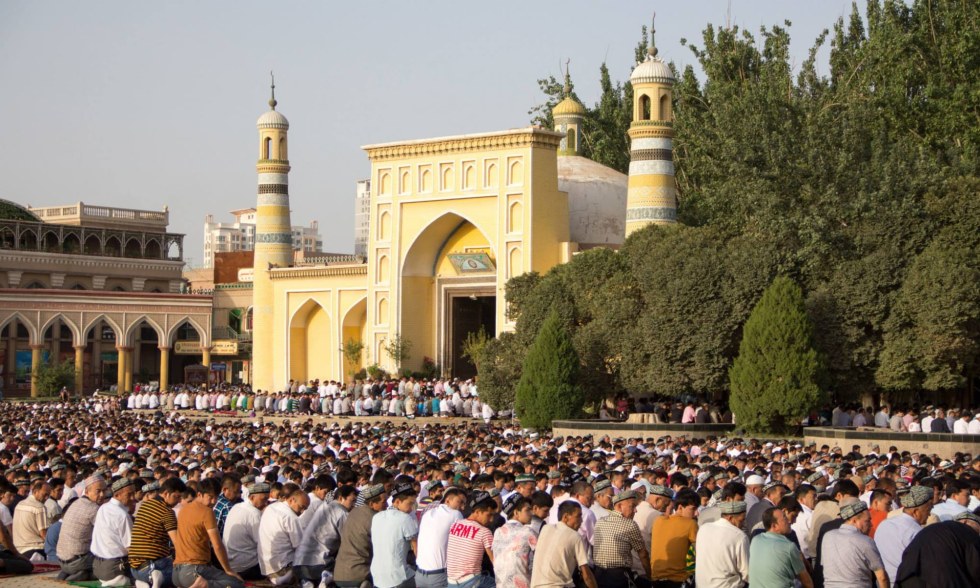 Id Kah Mosque in Kashgar, East Turkestan
Id Kah Mosque in Kashgar, East Turkestan
In East Turkestan, there are no signs that the massive buildup in both police presence and surveillance technology will recede anytime soon, despite the perceived success in limiting violence and protests thus far.
If anything, it looks like things will get a lot worse.
Increasingly, any outward expression of religion or cultural expression is being seen as subversive, with even elderly intellectuals facing arrests, like the 82-year-old Islamic scholar Muhammad Salih Hajim, who died earlier this year in a reeducation camp.
Now Uyghurs are also being forced to hand over DNA samples and put spyware on their phones.
Meanwhile, spending on both technology and human-security presence is expected to rise even further.
"It is going to crazy heights and there are no sign of it abating ... quite to the contrary, the state officials are really into intelligent, big data processing, networking of information, storing all the information and linking it up, applying AI and predictive policing for it," said Zenz.
At least one facet of the East Turkestan model has gone global.
Just this past year, there were widespread internet shutdowns in Indian-controlled Kashmir, the English-speaking region of Cameroon, Ethiopia, Kenya and more than 30 other countries.
Often the causes are similar to what took place in East Turkestan -- ethnic tensions, riots or political events such as elections.
"It's an increase around the world," said Melody Patry, a spokesperson with Access Now. "Moreover, the phenomenon of repeat offenders is on the rise. ... When a government issues a first internet shutdown, they are more likely to issue others."
But China has moved on, and internet shutdowns are now rare.
While uninformed observers could see this as a sign of progress, in actuality it shows that the next frontier of digital surveillance and state control is not blocking information access but harvesting it with a purpose.
"You don't need these blackout shutdowns anymore when you have much more fine-grained mechanisms of control ... that can very early on detect potential issues and problems, and in turn promote self-policing, self-censorship," said Zenz.
"Because people know what consequences there are."
The shift in China is that the internet, which was initially seen as a threat due to its ability to allow users to access information, is now being perceived differently.
What was back in 2009 blamed for the riots is now the source of information empowering the Chinese government to preemptively arrest and detain not only Uyghurs but also, increasingly,
Chinese human rights lawyers,
feminist activists and
journalists around the country before they can post something inflammatory on a website or share sensitive content on WeChat.
"The internet ... has become a great source of information that can be intelligently processed at capacity and speed that was not possible 10 years ago," said Zenz.
"What we see is a moving from a mere firewall that just blocks or an instant response, like the deletion of messages, to proactive self-censorship."
The global rise in shutdowns, which Access Now notes are getting more sophisticated and fine-tuned, shows that East Turkestan model has a market in an increasingly technological, authoritarian world. How quickly other countries follow China's move toward more total, personalized and data-driven control depends on both the need and the availability of the tools pioneered in East Turkestan on the global marketplace.
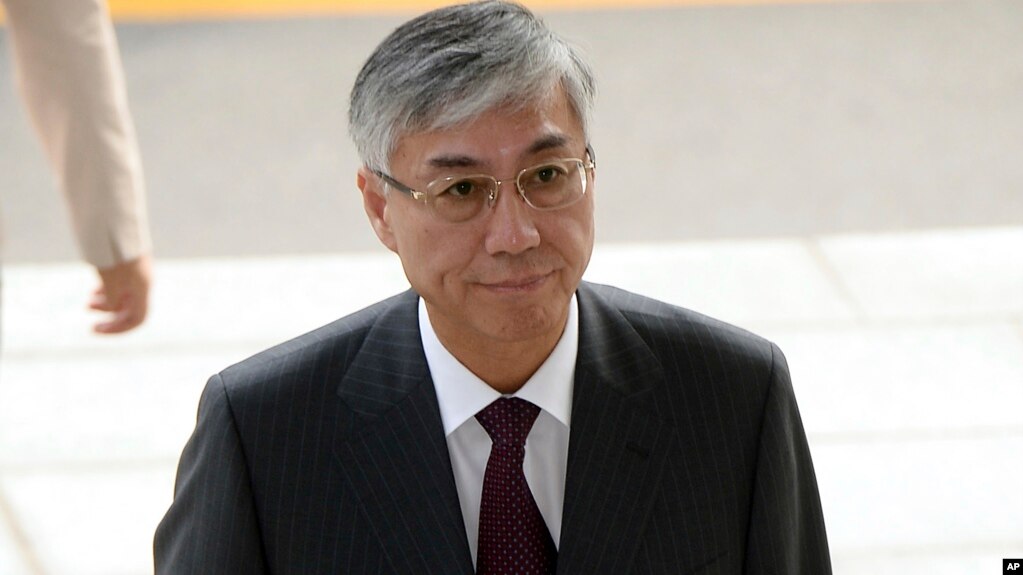 Chinese Ambassador to South Korea Qiu Guohong arrives at the Foreign Ministry in Seoul, South Korea, Oct. 11, 2016. On Tuesday South Korea summoned Qiu to protest Chinese military aircraft flying inside its air defense identification zone.
Chinese Ambassador to South Korea Qiu Guohong arrives at the Foreign Ministry in Seoul, South Korea, Oct. 11, 2016. On Tuesday South Korea summoned Qiu to protest Chinese military aircraft flying inside its air defense identification zone.
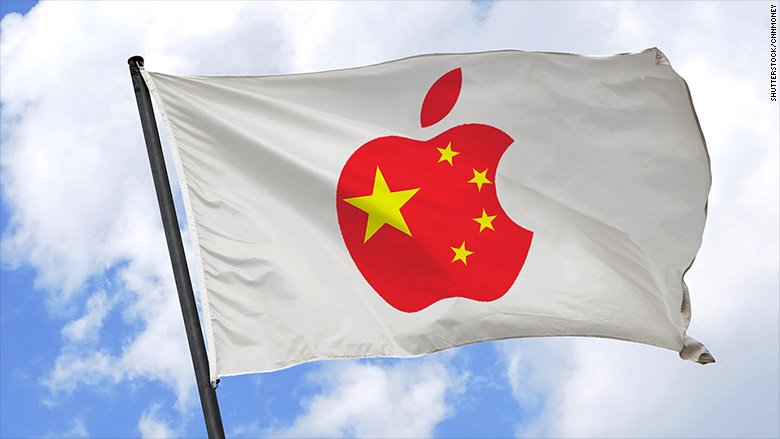











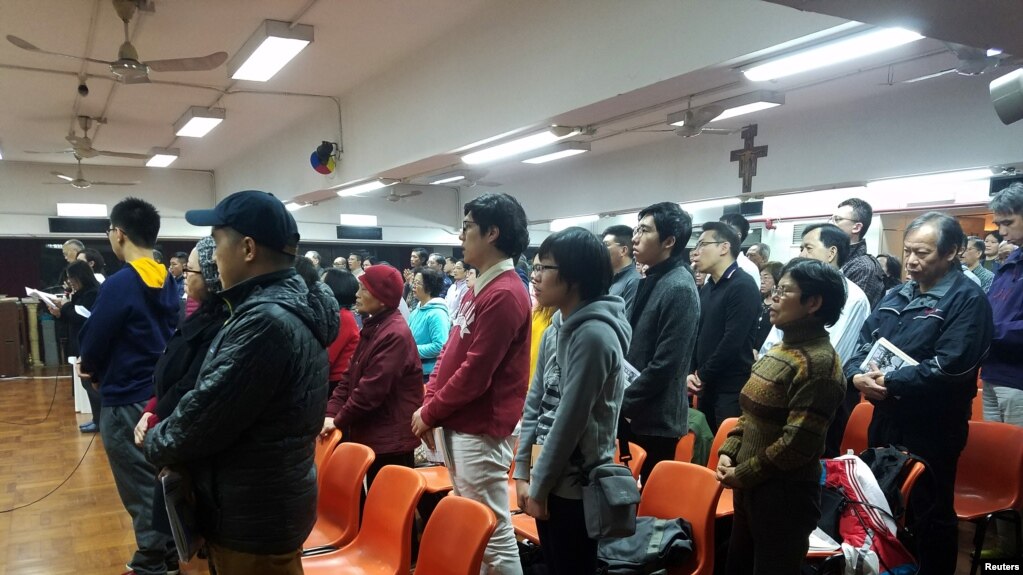
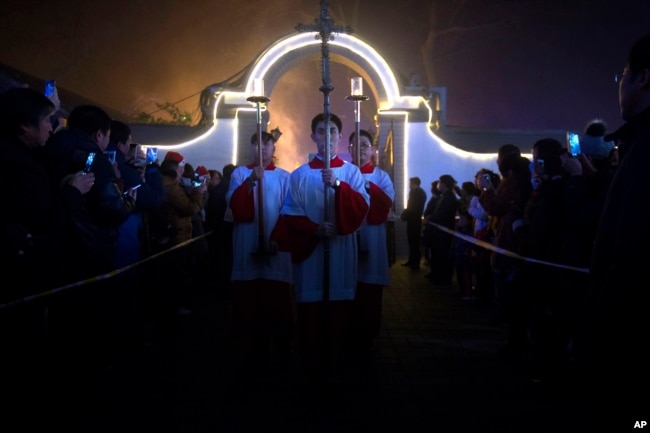


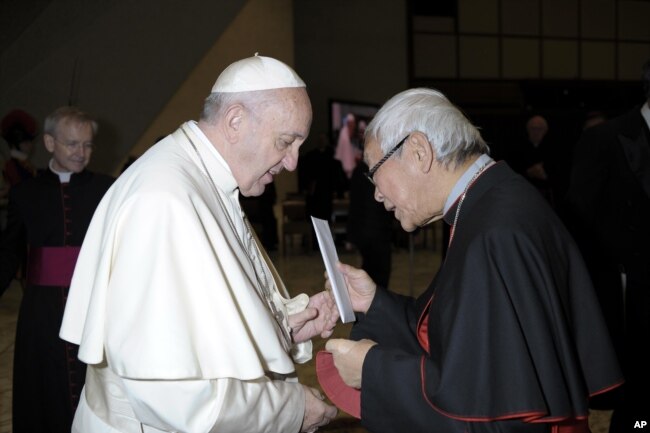









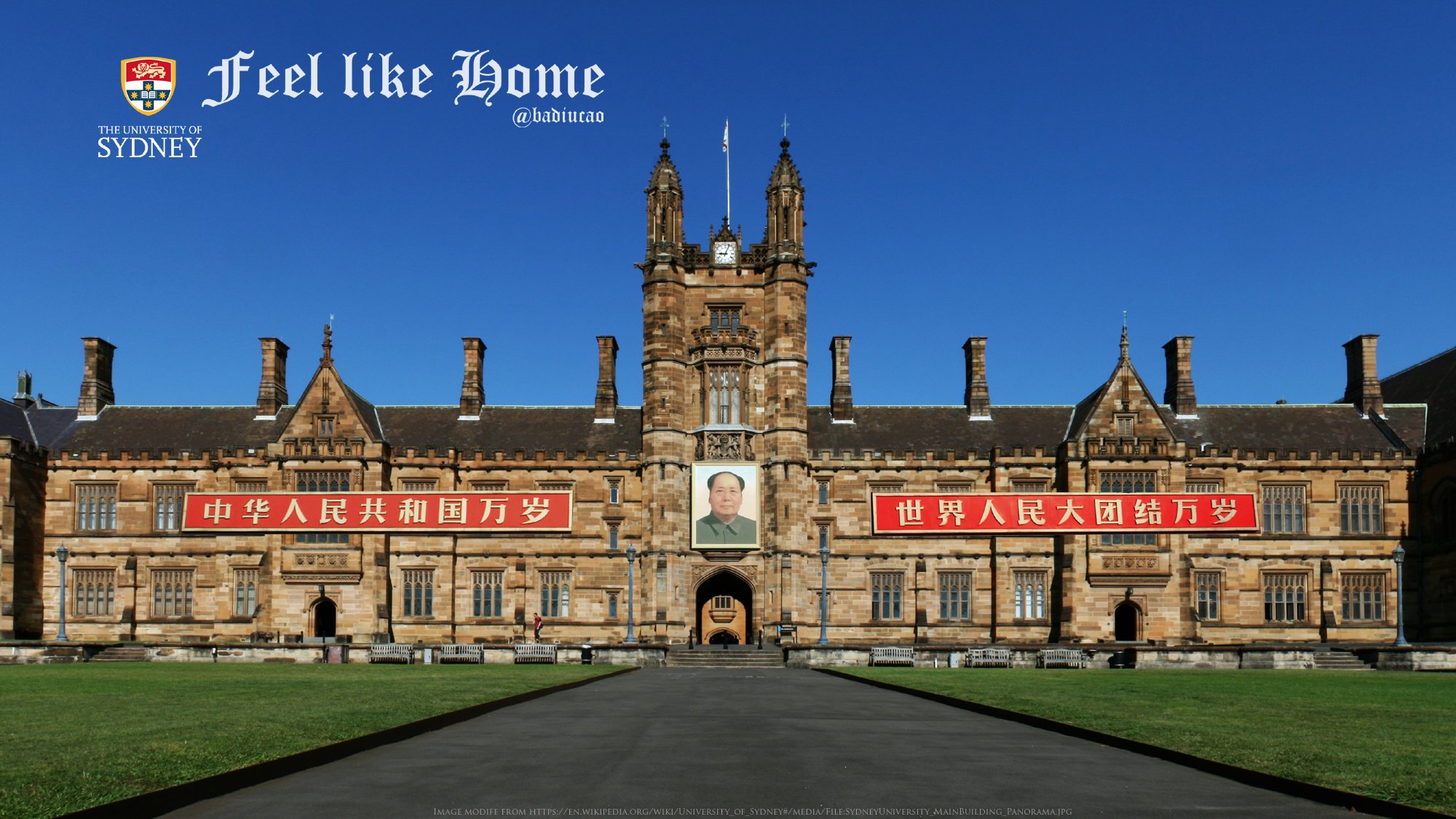




 Id Kah Mosque in Kashgar, East Turkestan
Id Kah Mosque in Kashgar, East Turkestan